Vinegar is truly a unique product. It is made by way of some extremely complex and time-consuming processes yet is so commonplace that most people have at least a bottle or two in their kitchens! It only takes a few drops to punch up the flavor of your grilled fish or salad dressing. If you prefer to use your vinegar as a natural cleaner, you know it only takes a splash mixed with baking soda to clean the whole kitchen!
So, what to do with that bottle of vinegar. You know, that bottle which is big enough to seem like it would take you no less than the rest of your life to use up. Can you freeze vinegar?
In short, yes you actually can. At length, the standard shelf life of vinegar means you would most likely not need to freeze vinegar. Furthermore, not all types of vinegar take well to being frozen. Nevertheless, freezing vinegar is a fairly easy process and can serve to make a long shelf life even longer. Read on to have all of your frozen vinegar questions answered!
Table of Contents
What is Vinegar?
Vinegar is essentially alcohol which has been intentionally allowed to go bad. In fact, the word vinegar is derived from vin aigre, which in French means “sour wine”! We all know that sour wine is no good to drink, but when turned into vinegar, it does have plenty of other applications, in the kitchen, around the house, and beyond!
How is Vinegar Made?
Vinegar is the result of a two-step fermentation process. In the first step, microorganisms known as yeasts chow down on the naturally occurring sugars in any natural product (commonly apple juice, grapes, or grains), producing ethanol as a byproduct. This is known as alcoholic fermentation. In the second step, after the yeasts have perished due to all the sugar being consumed, a specific type of bacteria known as acetobacters take hold of the mixture. These little critters are able to convert the ethanol into acetic acid in a process is known as acetic fermentation.
The acetic acid that is produced by those happy bacteria is exactly what makes vinegar so pleasantly tangy. Pure acetic acid, however, is dangerous and corrosive, not at all edible! Not to worry though, the acetic acid concentration in any given type of vinegar only ranges from around 4% to 8%.
What Types of Vinegar Are There?
There are many different types of vinegar, as just about any alcohol product can be fermented into vinegar. This is exactly what accounts for the wide range of vinegar types. From red wine vinegar and rice vinegar to balsamic vinegar and apple cider vinegar, there are truly as many vinegars as there are wines, spirits, beers, and ciders!
Whatever base ingredients are used in that initial alcoholic fermentation are what will be responsible for the resultant flavor profile that the vinegar develops during that second phase of acetic fermentation. Basically, red wine vinegar will taste red wine-y, apple cider vinegar will taste apple-y, and so on.
How to Store Vinegar
One of the things that makes vinegar so special is the fact that it does not actually require any special storage conditions in order to have a long and healthy life. Unlike olive oil, which can easily turn rancid, vinegar is self-preserving thanks to its high concentration of acetic acid–essentially killing any harmful microorganisms before they even start!
When storing vinegar, in most cases simply keeping the vinegar bottles tightly sealed and out of direct sunlight, such as on your pantry shelf or cabinet, is all that is needed for vinegar to stay fresh for as long as possible.
Most commercially packaged and sold vinegar will have some sort of expiration date or best by guideline included on the label as it is required by law to do so. This is helpful information as it clues you in on approximately how long you can expect vinegar to maintain its quality for. However, provided it is stored well, the shelf life of vinegar will most likely last far beyond that date on the bottle.
Does Vinegar Freeze?
As was stated, in most cases you need not store your vinegar in any place other than a pantry closet or kitchen cabinet. However, there are some situations in which you may find yourself wanting to freeze excess vinegar in order to store it and we’re here to tell you yes! Freezing vinegar is indeed possible!
Certain types of vinegar, such as wine vinegars, more readily experience changes in flavor or appearance as they age and therefore will gain an even longer shelf life by putting the freezer to use. Also, since vinegar is one of those products that tends to be most economical when purchased in large containers, freezing vinegar is a great option to make a buck go further. Prudent as well as thrifty–look at you!
Vinegar freezes quite well due to the fact that it is mostly water. The inclusion of acetic acid lowers the freezing point of vinegar slightly, from the usual 32℉ down to 28℉, but this is of no consequence as any home freezer will be kept at sub zero temperatures. It is worth noting that acetic acid decomposes no matter what temperature it is kept at, so even if you opt to freeze vinegar, it still will lose quality, potency, and flavor over time. However, this decomposition process is slowed at freezing temperatures.
How to Freeze Vinegar
To freeze vinegar, all you will need is a resealable plastic container with an airtight lid. Be sure not to use a glass container as glass is not recommended for vinegar freezing purposes. Any type of glass is subject to cracking or shattering under the stress of sub zero temperatures, and therefore attempting to freeze liquids inside glass poses a big safety hazard.
There are two main freezing methods to choose from here and the freezing process is the same for whichever type of vinegar is in question!
Step 1
Transfer the vinegar into your designated container, being careful to examine the bottom and sides of the container for any chips or hairline cracks. Small openings such as these are of no concern when freezing solid foods, but when freezing a liquid such as vinegar, any crack in the bottom of the container will surely result in a mess. Be sure to leave several inches of headspace at the top of the container. All liquids expand when frozen and freezing vinegar is no exception!
Step 2
This is one instance in which it is very important to label your container. Frozen vinegar is bound to look like any number of other things which you might have in the freezer–such as juice, chicken stock, or just plain water! Take the extra moment to note what type of vinegar is inside the container and save yourself any future culinary misfortunes.
Step 3
Place the entire container in a flat and stable location in your freezer. Once the vinegar freezes solid, you can move it around a bit and even turn it on its side if you're pressed for space, but until then, be sure that it stays nice and level to avoid any leaks.
How to Freeze Vinegar: Option Two!
While freezing vinegar in one large container is definitely the most straightforward and easy option, the following method will surely make your life easier. Using the ice cube tray method, you can set yourself up to defrost vinegar in whatever amount you need, whether it be a few spoonfuls or a few cups!
Step 1
Pour the vinegar into an ice cube tray, being careful not to overflow the individual cups. Keep in mind once again that the vinegar will expand as it freezes, therefore each frozen vinegar cube will wind up slightly larger than it begins.
Step 2
Place the vinegar-filled ice cube tray in a very flat section of your freezer, being sure that nothing will disturb it until the vinegar cubes are fully frozen.
Step 3
Once the vinegar has frozen completely, remove the vinegar cubes from the ice cube tray and transfer them into a resealable plastic bag or a freezer bag. Label the bag and toss into the freezer. Now you can just pull out one vinegar cube if you only need a spoonful or defrost several if you need a lot!
Types of Vinegar to Avoid Freezing
As was previously mentioned, not every type of vinegar out there is a good candidate for freezer storage. Here are a few varieties you should avoid storing in the freezer.
Apple Cider Vinegar
Apple cider vinegar tends to lose its flavor when frozen, therefore it's not recommended that you attempt freezing this one. In addition, many apple cider vinegars include the "vinegar mother", which are groupings of the healthy bacteria which live in and created the vinegar in the first place. If you freeze apple cider vinegar, you risk killing off these cells and any added health benefits along with them.
Distilled White Vinegar
This type of vinegar will freeze just fine, however it's so beyond unnecessary that we don't recommend it! Distilled white vinegar is the purest vinegar you can get, therefore there is no taste or quality to be lost over time. Distilled white vinegar essentially has an indefinite shelf life, so long as you keep it capped and are careful that no external contaminants get introduced into the bottle.
Vinegar Mixtures
The how-to-freeze vinegar guide we've included here only works for unaltered vinegar. If you are looking to freeze vinegar that has already been mixed into a marinade, includes additives, or is seasoned in any way, it's likely that you may have some less than ideal results. Be sure to carefully consider any other ingredients that are in your vinegar mixture before freezing!
How to Defrost Frozen Vinegar
Defrosting frozen vinegar is honestly as easy as melting ice! When you need some vinegar for your recipe or dish, just remove it from the freezer and place it in the refrigerator until it is fully melted. If you only need to defrost a few frozen vinegar cubes, simply place them into a sealed container and allow them to melt thoroughly in the fridge as well.
Even though vinegar is, well, vinegar, it’s still not recommended to let it thaw on the countertop. Best food safety practices are to keep any item that has been frozen in the safely chilly temperatures of the fridge.
What are the Health Benefits of Vinegar?
Vinegar is touted as having many different health benefits. Some of these are rumors or “old wives' tales” while others have been heavily researched and backed by science!
Apple cider vinegar is one variety of vinegar which has many proven positive health effects, from helping to maintain healthy blood sugar to reducing body weight and helping you to feel fuller for longer. Furthermore, the acetic acid content within all vinegar types has natural antibacterial and antimicrobial effects which can help with immune system function and may help to treat certain skin conditions.
Does Vinegar Freeze? The Bottom Line
Yes, you can absolutely freeze vinegar, although in most cases, you really wouldn't need to! If you are keeping your vinegar bottles tightly sealed and out of direct sunlight, they will likely last for years before experiencing any loss of flavor or appearance.
But maybe you have an extra-large bottle of rice vinegar you are trying to maintain, or you simply want to help keep your aging bottle of red wine vinegar at peak flavor for as long as possible! In any cases such as these, storing vinegar in the freezer is indeed a great option. Just keep in mind that the flavor and appearance of the vinegar will continue to decline, even in freezing temperatures, albeit at a slower rate than vinegars that are kept at room temperatures.
So go ahead and splurge on the big bottle! Vinegar is a truly unique and useful ingredient, and definitely something each and every home should have plenty of on hand, frozen or not.

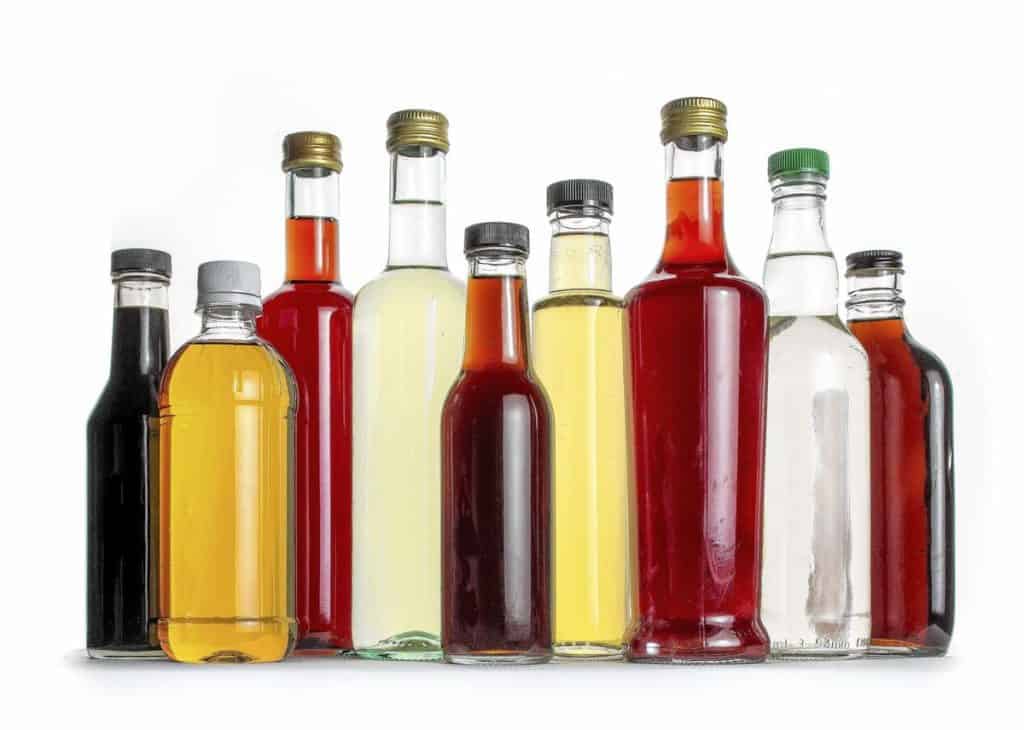
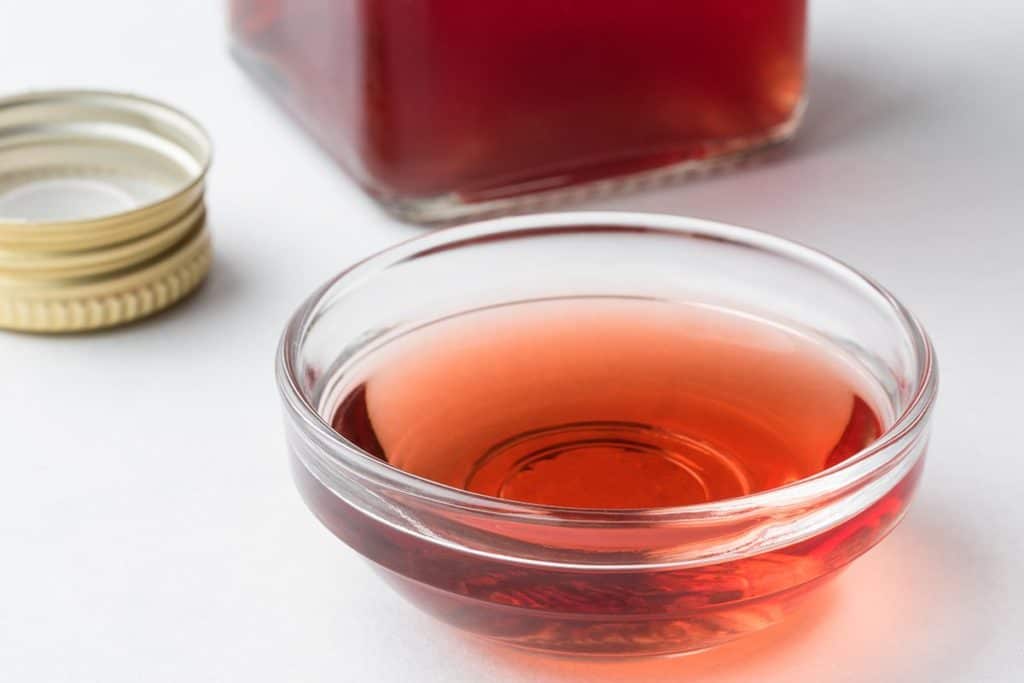

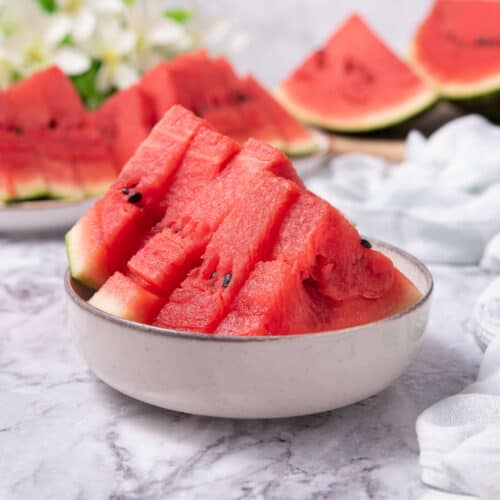
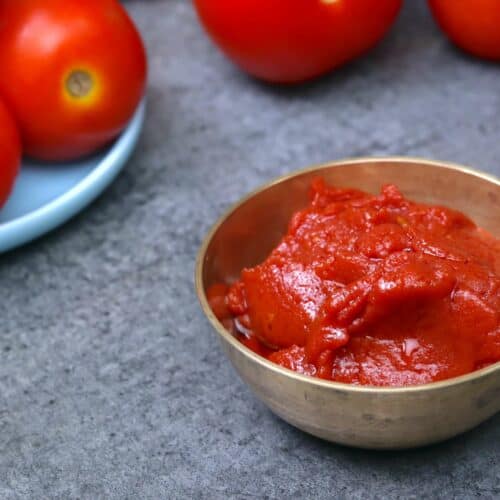

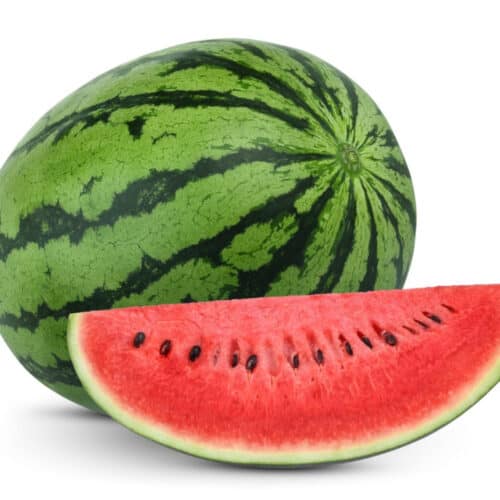


Leave a Reply